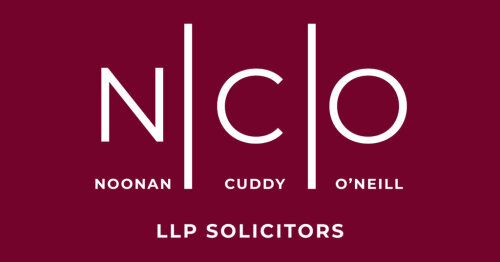Best Defamation Lawyers in Loughrea
Share your needs with us, get contacted by law firms.
Free. Takes 2 min.
List of the best lawyers in Loughrea, Ireland
About Defamation Law in Loughrea, Ireland
Defamation law in Loughrea, like the rest of Ireland, provides legal protection for individuals and organisations whose reputation may have been unjustly harmed by false statements. Defamation occurs when a person communicates a statement to a third party that causes harm to another’s reputation. There are two main types of defamation in Ireland: libel (written or published statements) and slander (spoken statements). Irish defamation law aims to strike a balance between protecting personal reputations and upholding the right to freedom of expression. The law can be complicated, making it crucial to understand your rights and obligations if you are involved in a defamation issue in Loughrea.
Why You May Need a Lawyer
You may require legal assistance with defamation in Loughrea in several common situations, such as:
- Someone has published or spoken false statements about you that harm your reputation, and you wish to protect your good name or seek compensation.
- You have been accused of making defamatory statements and need to defend yourself or mitigate legal consequences.
- You own or manage a business affected by negative or false reviews, news articles, or social media posts.
- You work in print or broadcast media and need advice about the risks of publishing certain material.
- You have been served with a legal notice demanding the removal of allegedly defamatory online content.
A lawyer who specialises in defamation can help you understand your options, gather evidence, evaluate your case, communicate with the other party, and represent you in court if necessary.
Local Laws Overview
Key aspects of the law governing defamation in Loughrea fall under the Defamation Act 2009, which modernised the law in Ireland. Important features include:
- The definition of defamation covers both spoken (slander) and written or published (libel) statements.
- To succeed in a defamation action, the claimant must prove that the statement was published to a third party, referred specifically to them, and caused reputational harm.
- Truth (justification), honest opinion, and absolute or qualified privilege are available defences.
- A person accused of defamation can make an "offer to make amends" to resolve the issue promptly.
- The law allows for circuit court and High Court proceedings, depending on the severity and value of the case.
- The Act provides a statutory code for apologies, corrections, and the removal of statements as remedies.
- There are time limits to bringing defamation claims, typically one year from the date of publication, though this may be extended to two years in exceptional circumstances.
Local nuances in Loughrea may arise due to the size of the community, where the impact of defamation can feel more immediate and personal. Local courts handle many such cases, and knowledge of community standards can influence outcomes.
Frequently Asked Questions
What qualifies as defamation in Loughrea, Ireland?
Defamation involves publishing or communicating a false statement to a third party that damages a person’s reputation. It can be written (libel) or spoken (slander). The statement must be proven to have caused actual reputational harm.
Is it possible to sue for defamation over social media posts?
Yes, defamatory statements shared on social media platforms are treated as published content and can be the basis of a defamation claim if they meet the legal criteria.
What defences are available if I am accused of defamation?
You may defend yourself by proving the truth of the statement, showing it was an honest opinion based on facts, or demonstrating it was made under privilege (such as in court proceedings or parliament).
How much compensation can someone receive for defamation in Ireland?
Compensation varies depending on the seriousness of the harm suffered, including any distress or damage to reputation, and actual or potential financial loss. Courts also consider the circulation and audience size.
What is the time limit for taking a defamation case?
Generally, you must commence defamation proceedings within one year of the defamatory statement's publication. In some cases, the period may be extended to two years if there is a valid reason for the delay.
Can I request the removal or correction of a defamatory statement without going to court?
Yes, the law allows for formal requests for retraction, correction, or apology. Many disputes are resolved this way, without full court proceedings.
Do I need evidence to support my defamation claim?
Yes, you should provide any evidence showing the defamatory statement, its publication or communication, and proof of the harm it caused to your reputation.
Can businesses sue for defamation in Loughrea?
Businesses and other organisations can also bring defamation actions if their reputation has been damaged by false statements.
Will a defamation case become public?
Most court proceedings are public in Ireland, including defamation cases. However, sensitive information may sometimes be protected by court order.
Should I get legal advice before taking any action?
It is strongly recommended to seek specialist legal advice before making or responding to a defamation claim. A lawyer can assess your case, advise on the strength of your position, and help avoid costly mistakes.
Additional Resources
If you need more information or support regarding defamation in Loughrea, consider contacting:
- Galway Solicitors Bar Association: Provides listings of local solicitors with experience in defamation cases.
- The Courts Service of Ireland: Offers guidance on accessing civil courts, case information, and legal procedures.
- Legal Aid Board: Helps those who cannot afford a private solicitor by offering legal advice and, in some cases, representation.
- Press Ombudsman of Ireland: Deals with complaints about defamation and other media reporting issues.
- Citizens Information Centre: Located in Galway, offers free, confidential, and impartial legal information to the public.
Next Steps
If you believe you are a victim of defamation, or have received a defamation complaint in Loughrea, consider the following steps:
- Save all relevant evidence, including printed materials, digital screenshots, audio recordings, or witness statements.
- Do not respond publicly or escalate the situation without legal advice, as this may worsen matters.
- Contact a local solicitor specialising in defamation to review your case and advise you on the best course of action.
- If you are approached by the press or online platforms, defer commenting until you consult with your lawyer.
- Be aware of strict time limits that apply to taking legal action.
Taking prompt, informed steps can help protect your rights and achieve a resolution, whether that involves legal proceedings or an out-of-court settlement.
Lawzana helps you find the best lawyers and law firms in Loughrea through a curated and pre-screened list of qualified legal professionals. Our platform offers rankings and detailed profiles of attorneys and law firms, allowing you to compare based on practice areas, including Defamation, experience, and client feedback.
Each profile includes a description of the firm's areas of practice, client reviews, team members and partners, year of establishment, spoken languages, office locations, contact information, social media presence, and any published articles or resources. Most firms on our platform speak English and are experienced in both local and international legal matters.
Get a quote from top-rated law firms in Loughrea, Ireland — quickly, securely, and without unnecessary hassle.
Disclaimer:
The information provided on this page is for general informational purposes only and does not constitute legal advice. While we strive to ensure the accuracy and relevance of the content, legal information may change over time, and interpretations of the law can vary. You should always consult with a qualified legal professional for advice specific to your situation.
We disclaim all liability for actions taken or not taken based on the content of this page. If you believe any information is incorrect or outdated, please contact us, and we will review and update it where appropriate.









